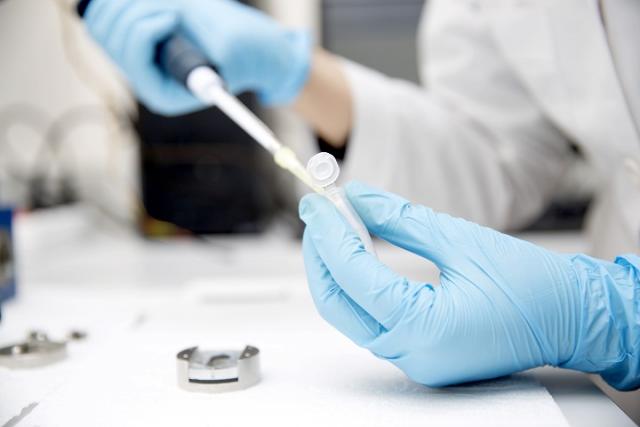
Welsh Government funded research finds sewage signals to be early warning of coronavirus outbreaks
29 October
A Welsh Government funded project, worked on by researchers at Bangor University, is successfully detecting traces of COVID-19 in sewerage, providing an early warning for local outbreaks across the country and sharing data with NHS Test and Trace.
The programme, which was first announced in June, has now proven that fragments of genetic material from the virus can be detected in wastewater. This can then indicate where a local community or an institution is experiencing a spike in cases
The results can provide local health professionals with a clearer picture of infection rates by identifying where there are high numbers, particularly for asymptomatic carriers and before people start showing symptoms. This will allow local authorities to take early action to slow the spread of the virus.
Professor Davey Jones, Professor of Soil & Environmental Science at Bangor University and Principal Investigator for the study in Wales, said:
“We have been monitoring viruses like norovirus and hepatitis in human sewage for the last decade, as part of a programme to evaluate levels of these viruses in the community. We added COVID-19 to the surveillance list in March this year.
“We showed that viral levels in wastewater mapped really well onto the success of lockdown measures in the first COVID-19 wave and to the emergence of the second wave. We are now using it to track the emergence and control of COVID-19 cases and working on new pilots to map the virus at both the local and the regional scale.”
The data will be shared with NHS Test and Trace and inform where new outbreaks may be happening. It means that public health professionals can speak directly to institutions where there may be spikes in infection. Those institutions can in turn can encourage people to get tested or take extra precautions.
Professor Kieran Walshe, Director of Health and Care Research Wales, said:
“Early warning signals are vital in saving lives and protecting the health and prosperity of Wales, and the UK. It’s fantastic to see Welsh researchers getting promising results from work that will help pave our way out of the pandemic.”